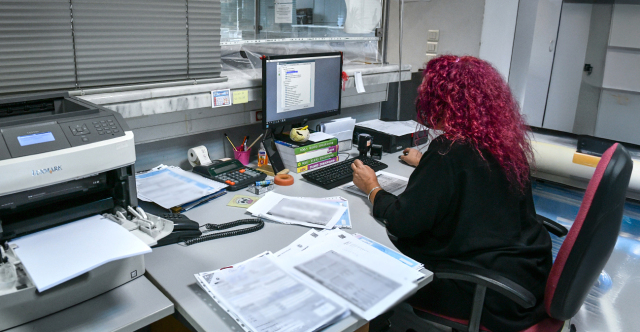The Independent Public Revenue Authority (ADEA) is actively engaged in systematically recording and managing overdue debts owed to the public sector, aimed at improving revenue collection efficiency and providing a clearer economic picture of the country. Current data indicates that the total overdue debts amount to around €108.4 billion, significantly straining the state budget and financial oversight.
Out of these overdue debts, over €10 billion are deemed uncollectible, primarily consisting of claims from bankrupt companies, deceased taxpayers without heirs, and debtors lacking registered assets. A sum of €26.3 billion has already been added to ADEA’s special register of irrecoverable debts to streamline the management of these liabilities. This registration process is anticipated to be completed by the end of 2025, temporarily pausing recovery actions to focus on debts with realistic chances of recovery.
The inclusion in the register, as per the Public Revenue Collection Code (PRC), necessitates exhaustive asset searches for the debtor and any co-debtors.
- Key criteria include:
- * No recorded property or claims from third parties
- * Filing of criminal charges as needed
- * Objective impossibility of collection
- * Property with low value (less than 5% of the principal debt, capped at €100,000 for real estate and €30,000 for movable assets)
The process for inclusion varies by amount:
-
- For debts up to €300,000, local tax and customs offices manage the cases.
- For amounts between €300,000 and €3 million, approval from the AADE Governor is needed.
- For debts exceeding €3 million, the Governor makes decisions based on recommendations from the Operational Unit for Recovery.
The classification of a debt as irrecoverable does not cancel it but temporarily suspends recovery efforts for up to a decade. The State retains the right to reassess the debt should circumstances change (e.g., discovery of assets), at which point the debt “revives” and becomes collectible again.
-
- Upon registration:
- The limitation period for the debt is paused.
- The issuance of tax certificates is halted.
- Bank accounts, safe-deposit boxes, and other investment instruments will be frozen.
- Offsets and seizures are permitted if assets are identified.
Meanwhile, AADE is ramping up efforts to collect the remaining overdue debts, estimated at around €81 billion. A collection target of at least €3 billion has been set for 2025, which includes direct outreach to 60,000 debtors.
Repayment plans are also in progress with favorable terms:
- For municipalities: Up to 60 installments, with a minimum of €50 per installment, and exemptions of up to 95% on surcharges for vulnerable groups.
- For tax authorities: Fixed interest rates until March 2025—4.34% for up to 12 installments, 5.84% for more than 12, and 7.34% for a second arrangement with over 12 installments.
Debtor Disclosure
In collaboration with e-EFKA, AADE will publish updated information on overdue debts by 30 June 2025. This list will feature debts exceeding €150,000 that have been unpaid for over a year, aimed at bolstering transparency and public confidence in the tax system.
A comprehensive strategy for managing overdue debts is crucial for fiscal stability and improving tax compliance. AADE continues to implement targeted actions and enhance collection tools to secure public revenues and bolster the Greek economy.
Ask Me Anything
Explore Related Questions

















